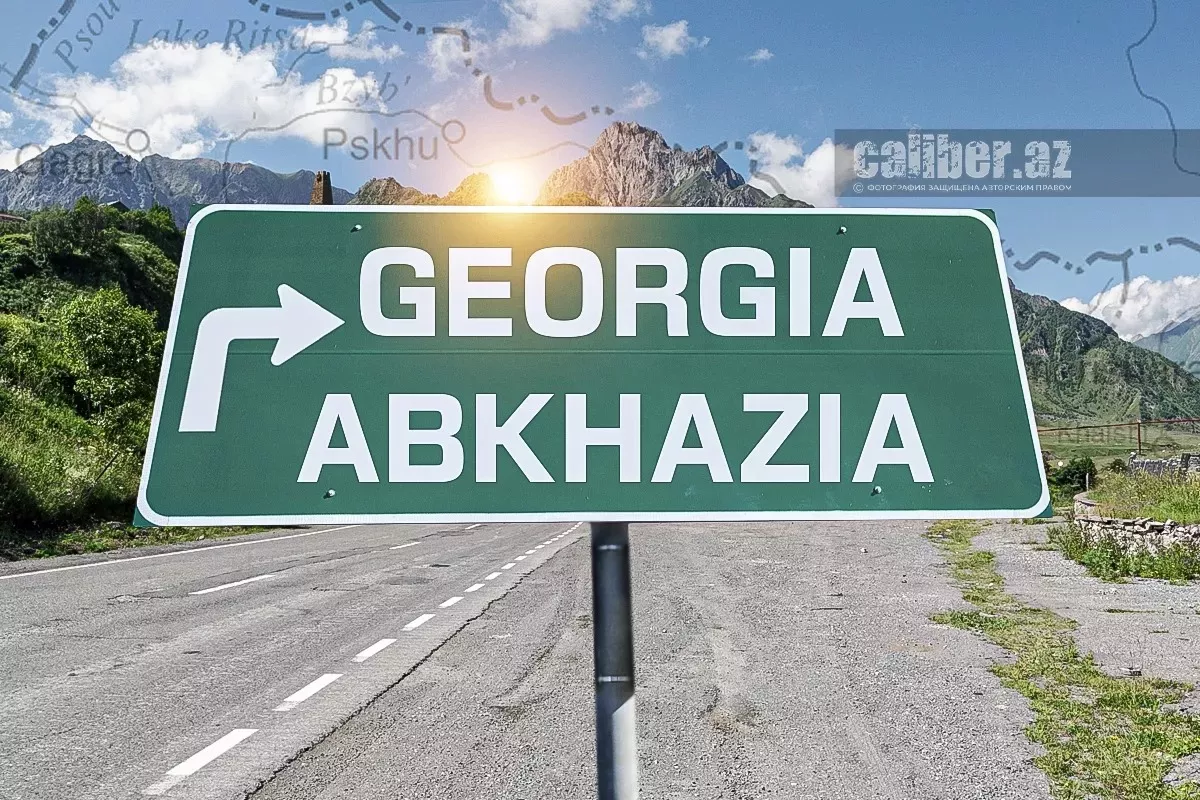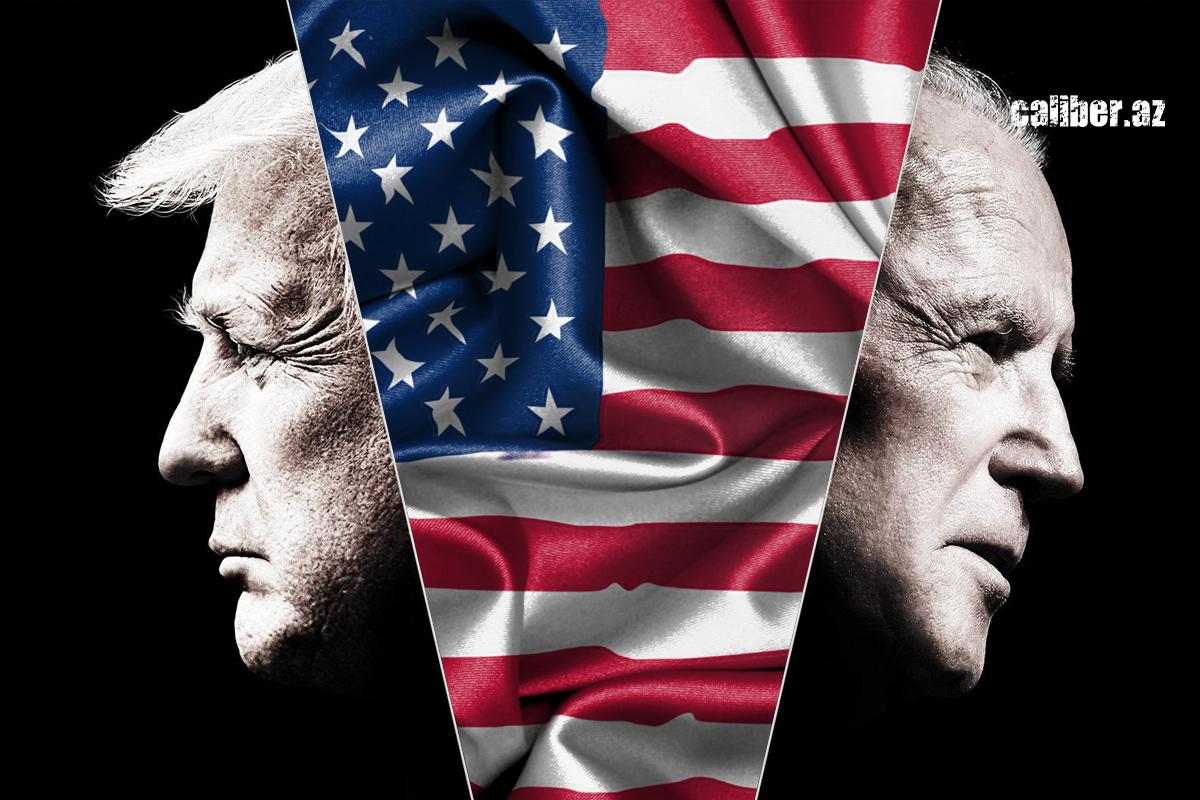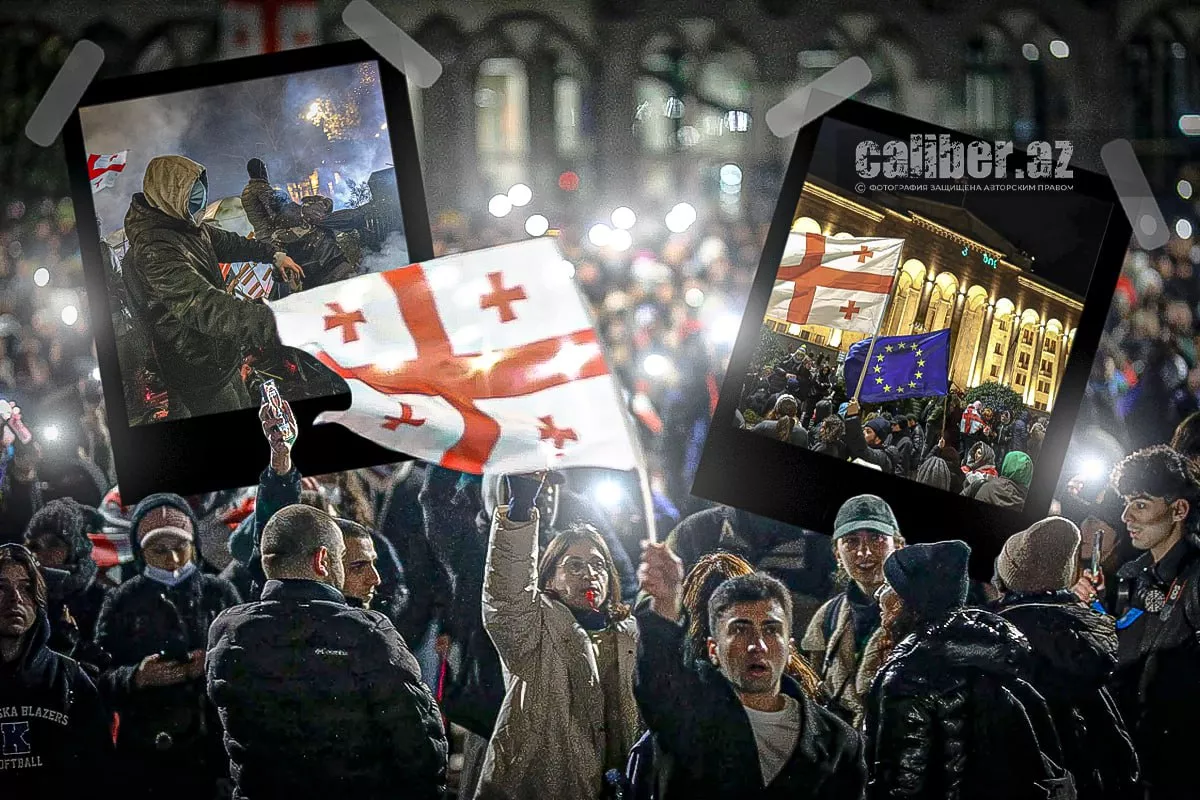Georgia and the new realities of the South Caucasus Power lies in independence
Real events continue to expose the falsehood of the so-called "pro-Russian regime" in Georgia. This absurd caricature has long been painted by Western liberal elites and the comprador opposition movements they have nurtured in the South Caucasus and across Eastern Europe.
Once again, the Georgian government has demonstrated that it will not compromise the country’s territorial integrity for the sake of restoring relations with Russia. To continue accusing the authorities of lacking independence would require abandoning common sense and logic altogether.
In reality, Georgia—like Azerbaijan—is simply building a sovereign state, regardless of hissing from either the East or the West. And in the new international political reality, where the old global powers are weakening, new opportunities for this have emerged.
Tbilisi holds an increasingly strong hand
Geopolitical transformations have strengthened the positions of Georgia (and Azerbaijan), as the ruptured links across the Eurasian continent can now be partially replaced by new routes running through the South Caucasus. For the European Union, it is vital to gain control over these eastward pathways, while simultaneously blocking Russia. Conversely, Moscow would like to prevent this while also expanding its own "window to the world" via Türkiye and Iran.
This very competition lies at the heart of the recent "Maidan" in Georgia and explains the ongoing pressure on Tbilisi.
Last week, Moscow made the next move in this geopolitical chess game. First, Russian Deputy Foreign Minister Mikhail Galuzin announced Russia’s readiness to restore diplomatic relations with Georgia. His remarks were later echoed by Kremlin spokesman Dmitry Peskov.
However, it is difficult to view these overtures as genuinely attractive for Georgia, as the signals from the Russian side have been contradictory. On the one hand, these gestures of reconciliation were made, while Russian media began releasing new details about exploitative economic activities in the Georgian territories controlled by separatists. For instance, reports surfaced about massive amounts of electricity—allocated by Russian authorities to their separatist protégés at preferential rates—being used for illegal cryptocurrency mining.
On the other hand, Russia announced the launch of direct flights starting in May from Moscow to Sukhumi, the city held by Abkhaz separatists.

Nevertheless, the persistent public statements point to Moscow’s growing interest in reaching a settlement with its neighbouring country. The ruling party in Tbilisi, Georgian Dream, was quick to respond.
Parliament Speaker Shalva Papuashvili reiterated that normalising relations could only begin once Russia takes concrete steps toward resolving the core issue in bilateral relations — the occupation of one-fifth of Georgia’s territory, namely Abkhazia and South Ossetia.
However, the firm stance on defending the country’s territorial integrity did not stop the opposition from accusing Georgian Dream of pursuing a pro-Russian course. After all, without such narratives, the collective West wouldn’t fund their power struggle—so everything must be framed as “Russian scheming.”
According to the United National Movement, supporters of former President Saakashvili, the government maintains a tough position on pro-Russian separatists only because the Georgian public would not tolerate anything else. One must assume the opposition believes it has a way to peer into the minds of its opponents and uncover hidden pro-Russian convictions and a metaphysical pro-Moscow orientation—despite these same politicians pursuing policies that contradict such claims entirely.
In reality, there are no signs of any pro-Russian or foreign alignment in Georgian Dream’s actions. What the party firmly rejects is the idea of Georgians being turned into cannon fodder in the struggle between global powers for influence and hegemony. Instead, its policies are clearly oriented towards internal Georgian dynamics—something that particularly irks the EU and France, who seek geopolitical expansion under the banner of pseudo-liberal dogma.
“Pro-Russian” = rejection of LGBT radicalism + transparency?
In fact, the absurd hysteria seen in recent years among Western and pro-Western liberal circles toward the Georgian Dream government stems precisely from its refusal to ignore the views of the Georgian public. For months now, liberal media outlets, politicians, and activists have been claiming that the current Georgian leadership is unindependent and “tied to the Kremlin.”
To them, the evidence is “undeniable”—although to any clear-thinking person, these claims seem like a mockery of logic and common sense. Among the supposed proofs is Tbilisi’s decision to establish a system ensuring transparency in political activities. Another example is the government’s political steps to limit the attempts of certain organisations—purportedly defending the rights of sexual minorities—to impose specific social norms on Georgian society.
Take the latter: the norms of the LGBTIQCAPGNGFNBA community (an actual acronym, telling enough without a full decoding) are often imposed without much public debate. But unlike some Eastern Europeans who portray themselves as “bastions of the civilised world,” Georgians have refused to follow this unwritten liberal tradition.
At first, this looked like a “slap in the face” to the public sensibilities of the so-called civilised white world. It seemed as though the Georgian government was about to be crushed.
The media and civil society—generously supported by USAID—did their part to create the appropriate atmosphere. And, in a dramatic gesture near the end of his term, President Biden even controversially rescinded an invitation to Georgian Prime Minister Kobakhidze.

Soon, however, it turned out to be quite the opposite—Georgia was actually ahead of the global curve. Just a few months later, Donald Trump returned to power in the United States, halting support for gender radicalism and shutting down USAID, Radio Liberty, and other organisations that had been manufacturing the illusion of demand for extreme LGBT norms.
It also became clear that even in countries once considered strongholds of radical LGBT ideology, societies were no longer willing to abandon common sense. That same week, the UK Supreme Court put an end to gender manipulation by ruling that only biological women can legally be recognised as women—not self-declared “transgender” individuals.
In other words, among countries associated with the collective West, Georgia—alongside Hungary—emerged as one of the first to spearhead the shift from pseudo-liberal radicalism toward more rational social values.
Without a strong state, the people are powerless and defenceless
Beyond rejecting the propaganda of LGBT-activist gibberish, the Georgian Dream government has also taken on the task of restoring order in the country. In essence, this mirrors what the Azerbaijani leadership began doing decades earlier. It means rejecting militant hysteria in favour of a patient and consistent programme aimed at strengthening sovereignty and restoring territorial integrity. It also means building an effective state system that cannot be manipulated by external forces—even those that currently appear friendly.
As is well known, Tbilisi addressed this challenge in a rather original way—by adopting a law on NGO transparency openly modelled on American legislation. After all, it is precisely through such organisations that foreign funds are funnelled into non-Western countries to interfere in political processes. And as Ukraine’s pre-2014 experience demonstrates, turning a blind eye to such interference from the West inevitably creates loopholes for similar meddling from the East—and beyond.
In response, the EU and the Biden administration in the US decided to overthrow the Georgian government, which had dared to challenge something sacred—NGOs as the informal controlling stake of the collective West in the governance systems of other countries. As the Speaker of the Georgian Parliament, Shalva Papuashvili, pointed out, "USAID spent, through political NGOs, USD 41,7 million on Georgian elections. In terms of US/Georgia population ratio, this would amount to USD 3,78 billion foreign money injected in US elections. These numbers are even more grotesque if compared with GDP ratio as well." In addition to USAID, other US and EU structures also provided funds—though the Trump administration has already made public the role of USAID.
And so, the "Maidan" in Tbilisi, launched six months ago, is simply fading away, even though it seemed success was near, and the Maidan political technology had repeatedly shown its effectiveness in changing regimes that were inconvenient for the West. But the Georgian leaders—unlike Yanukovych—did not abandon their security forces or flee. It turned out that a Maidan could be stopped without any loss of life and in full accordance with the law.

Following this, the "Maidan" in Serbia also collapsed, and in several EU countries, new non-liberal opposition parties have come closer to power or even joined governments. In other words, by breaking the tool of foreign intervention through NGOs and the "magic weapon" of the "Maidan," the Georgians found themselves ahead of new trends. On April 15, the Prime Minister of Slovakia, Robert Fico, a member of the EU-NATO bloc, wrote: "The warning from Mrs. Kallas [the EU official responsible for foreign relations, who threatened EU heads of state with 'consequences' if they visited Moscow] confirms that in the EU, we need to discuss the very essence of democracy. What happened in Romania or France regarding the presidential elections, or what kind of Maidans the West is orchestrating in Georgia or Serbia, or how abuses of criminal law by the opposition in Slovakia were ignored?"
Tbilisi continues on the same course — recently, amendments were made to the "Grant Law," which will make it possible for so-called "civil society" organisations to receive grants only with the approval of government bodies. Considering that NGOs in non-Western countries are typically funded by foreign sources and are not connected to the needs of the local population but are aligned with the interests of foreign players, this is a death sentence for them.
Russia has no reason to support the separatists
For the Georgian state, this is the beginning of the path towards ending Russia's occupation of Georgia's regions of Abkhazia and South Ossetia by creating the necessary conditions. The Georgian leadership is building a strong state capable of ending Russian occupation, but this requires not hysterical aggression, but consistent and constructive action.
This approach helps to understand the actions of the politicians of the Georgian Dream party. For example, at the forum in Antalya, Georgian Prime Minister Irakli Kobakhidze stated: "We have a peaceful vision of relations with Russia, which occupies 20% of our territory." And the honorary chairman of Georgian Dream, Bidzina Ivanishvili, had previously spoken about the willingness to apologize to the Ossetians and Abkhazians for the tragic events that led to the separation of these two regions from Georgia.
Is there a contradiction here? Not at all, if the goal is to protect the interests of the real, existing Georgia, and not to turn it into a platform for war with Russia (which, like other Eastern European nationalists, is the goal of the Georgian opposition).
A strong Georgian state, situated on a strategically increasingly important axis for both Russia and the West, will, by its mere existence, compel the Kremlin to reconsider its policy in the region. The choice will be between relations with a key regional country and ties with makeshift, miniature separatist entities. These entities are even less viable than what Armenian nationalists established in Azerbaijan's Karabakh. In other words, they are costlier for Russia, bringing no fewer problems, as they inevitably create "black holes" in the shadow economy and organised crime. Meanwhile, there are virtually no positive aspects to the occupation—there are no significant resources or infrastructure, and they are located on the southern periphery of Russia, far from the most important central regions.
Moreover, there is already a precedent for the peaceful reintegration of a similar separatist entity into Georgia. In 2004, Tbilisi dismantled the pro-Russian separatist structures in Adjara, which had seceded in the early 1990s. This region, with a population surpassing that of both Abkhazia and South Ossetia combined, and possessing greater economic potential and a better strategic position, had not only a Moscow-aligned government but also the 145th Motorised Rifle Division of the Russian Armed Forces stationed there. Nevertheless, the Georgian government succeeded in convincing the Russians to abandon this project, which had roots in Gorbachev's perestroika era. Unfortunately, this same government later radically changed its approach, siding with what it perceived as the "right" Western side in superpower disputes, leading to the catastrophic events of 2008.
To reiterate, in 2004, the situation concerned a much larger piece of Georgian territory. Moscow has no objective reasons to cling to Abkhazia and South Ossetia—though certain oligarchs and officials might have personal interests in them; these ties are of an ephemeral nature. Even Russia's official recognition of the two separatist entities does not hold significant weight—after all, Moscow recognised Bashar al-Assad's government in Syria, only to later turn a blind eye to its collapse and establish relations with a different regime.
The need for Russia to abandon the mafia-like, separatist microentities will be driven primarily by the necessity to build relations with a strengthening Georgia. But this will also be facilitated by regional developments in the South Caucasus—the restoration of historical unity in the region, growing ties between its countries, and their increasing significance in global politics and economics, including for ensuring Russia's and the EU's access to critical regions. For this to happen, Georgia must be a strong state, and the current government is moving in that direction.








